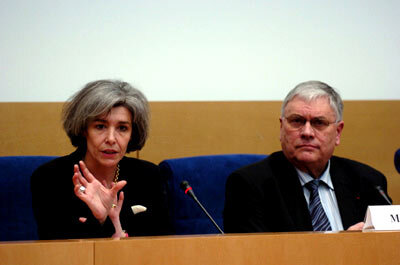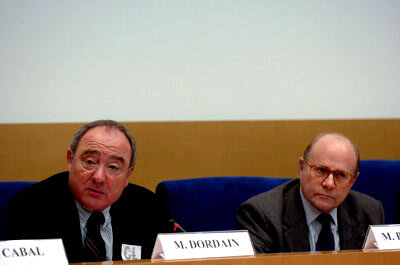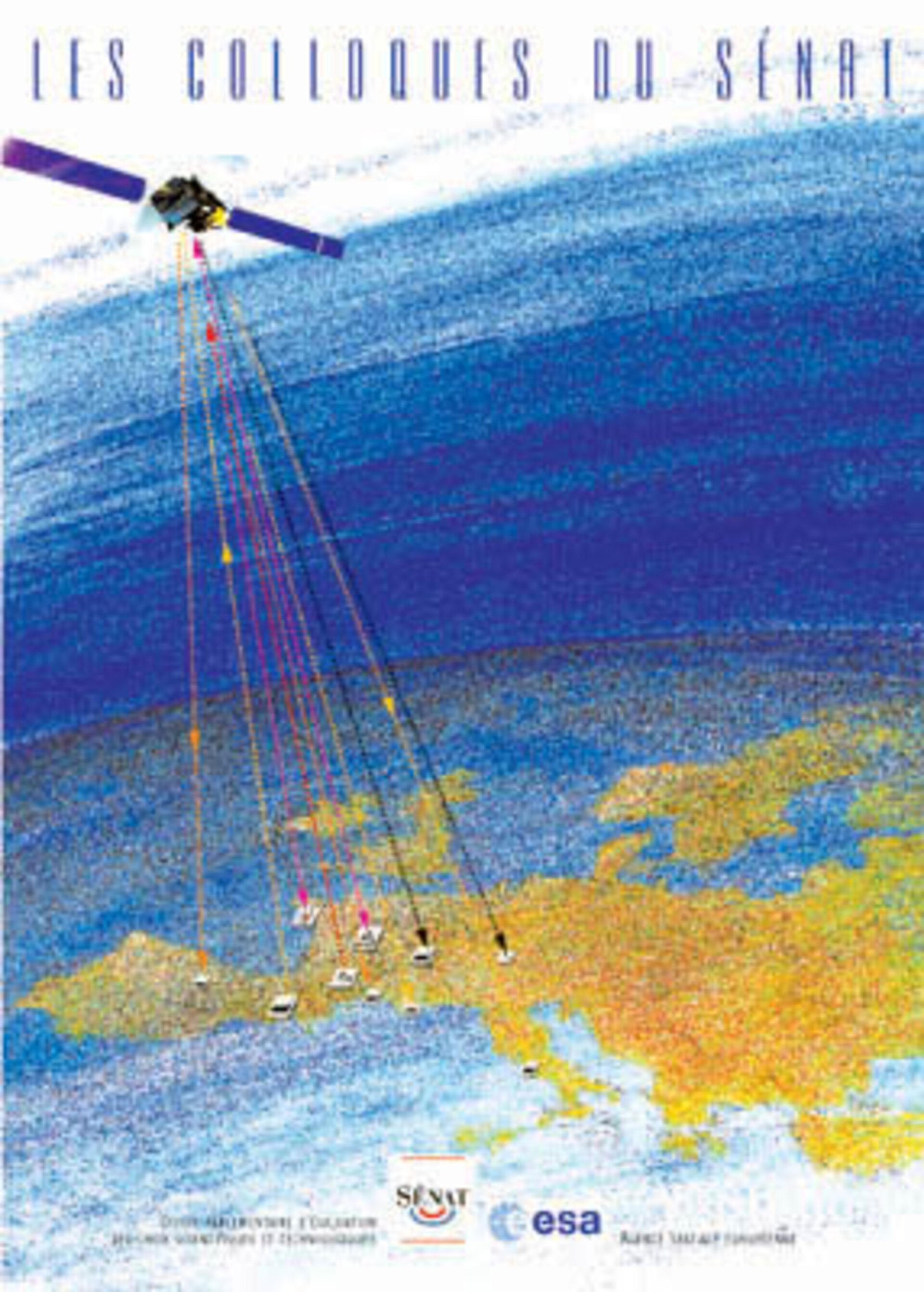Digital divide: French Senate weighs up satellite solutions
Narrowing the digital divide is set to be one of the great challenges of the decade. Satellite systems could be one of the solutions to providing equal access to information for all.
The various parties involved in this issue — elected representatives, consumers, industry and institutions — met at the French Senate on 22 January to debate the issue and draw up solutions.
The information society which has emerged as a result of advances in data transfer technology opens the way for applications which are revolutionising many areas of our lives, ranging from education to online access to public services and government, e-commerce and health. These benefits, however, cannot be enjoyed without access to broadband communications systems.
Over 65% of France and Europe is not yet covered by broadband networks. At the recent General Assembly of elected representatives in the Rhone-Alpes region, France's second richest, Senate President Christian Poncelet was moved to note that 46% of local authorities were not able to keep up with new developments in technology: “clearly, equal access to the new information and communications technologies is still just an illusion.” The same statement could easily be applied to Europe as a whole.
The limits of private terrestrial systems

On the initiative of the Office Parlementaire d’Evaluation des Choix Scientifiques et Techniques (OPECST) and the European Space Agency (ESA), representatives of local authorities, the space sector and telecommunications industry assembled at the Palais du Luxembourg in Paris to assess the current situation and possible solutions to deal with the problem in a colloquium on “the use of satellites by local and regional authorities to eradicate digital no-go zones.”
A number of pilot projects were presented, whether in France, like the Mégalis network, or elsewhere in Europe, such as in Ireland. It is quite clear that, at more than 140 euros a metre, optical fibre remains a far too expensive solution to be applied to rural regions.
“Left to market forces alone, the development of an information society would mean that broadband access would only be available in big urban conurbations”, notes John McAleer, Director of Ireland's South-West Regional Authority, which has served as a pilot region since 1996. “It would bring increased centralisation and economic concentration rather than decentralisation and a geographical dispersion of employment.” That is why the South West Broadband project turned to ESA and satellite solutions to provide broadband access to schools, businesses, local wireless networks, the medical profession, local authorities and island communities.
The contribution of satellites

The ideal way to use satellites for Internet access is to combine them with other technologies to provide local shared access, which can be cellular (Wi-Fi), radio (Wireless Local Loop), fixed phone lines (DSL) or the electrical network (carrier current).
Also, satellite systems are a simple and egalitarian way of providing access to networks and services for regions not well served by terrestrial infrastructures, such as rural or sparsely populated areas; it is this which gives it its social role and makes it a tool for regional development.
“We know that in the medium term, it will not be possible to connect 20% of France using cable, fibre or ADSL” notes Claudie Haigneré, France's Minister for Research and New Technologies. “This inequality with respect to digital technology runs counter to our founding principles.”
Experiments in certain French regions, such as the Cantal or the Ardèche, have highlighted the everyday situation in those relatively isolated and sparsely populated areas. For such areas, satellite would appear to be the most practical solution, not to mention the cheapest. Having said that, the regulatory regime would need to keep pace with technological developments in order to facilitate the creation of local networks built around a shared satellite access point.
The challenge is not only with respect to regional development policy but also industrial policy, explained CNES President Yannick d’Escatha. Indeed, in his opinion, the creation of a broadband satellite system in Europe would help a new market for European satellite manufacturers to emerge, and would have a positive effect on the overall European space situation.
A Europe-wide approach

For ESA Director General, Jean-Jacques Dordain, “Europe has decided to build a society founded on knowledge, and that is something that is impossible without the dissemination of information. The problem is of a political order and cannot be solved by means of a purely commercial solution.”
Moving on from that observation, he proposes setting up a Europe-wide project that would lead to the emergence of a technical standard for the whole continent. Such a project, which would be in keeping with European space policy as defined in the European Commission White Paper, would produce the critical mass required to set in motion the process of manufacturing terminals, which are currently too expensive to be adopted by local authorities and above all, ordinary consumers.
In addition, this project should cause operators to become involved and give confidence to investors.
According to Jean-Jacques Dordain, “EU enlargement is giving a new dimension to the question of the contribution that satellites can make. With populations which are more rural, poorer and more widely dispersed joining the European Union, satellites constitute a powerful means of rapidly bringing Europe closer together.”
The debate on the subject is far from over, with Europe's Committee of the Regions and ESA organising an international conference on broadband communications for Europe's regions to take place on 5 and 6 April in Killarney, Ireland.









